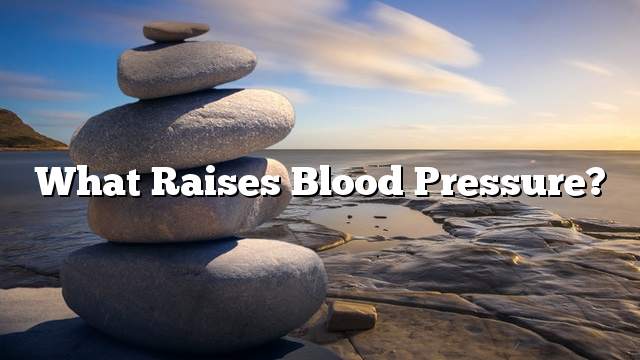blood pressure
At each pulse of the heart, the heart contracts to pump blood through the arteries to the rest of the body. The force generated by the blood vessels creates pressure, known as systolic blood pressure, and between the pulses, the heart takes a little rest to fill with blood. The pressure created in the arteries during the time of cardiac rest is called diastolic blood pressure. Systolic pressure is the numerator of the pressure readings, while diastolic pressure is the denominator of the pressure readings.
Hypertension
Blood pressure is normal if the systolic reading is less than 120 mmHg and the diastolic pressure is less than 80 mmHg. The person is in the first stage of high blood pressure (Stage 1 Hypertension) if the systolic reading is between 130-139 mm Mercury or diastolic pressure readings range from 80-89 mmHg, and the person is in the second stage of high blood pressure (Stage 2 Hypertension) if the systolic pressure reading is 140 mmHg or more or if the diastolic pressure reading is 90 mmHg or more.
Causes of high blood pressure
The causes of high blood pressure can be categorized as follows:
Primary hypertension
Hypertension is a type of primary hypertension. If it is not caused by it, basic hypertension is 95% of the cases of hypertension in adults. It can be said that this type occurs gradually over several years .
Secondary hypertension
Hypertension is a type of secondary hypertensive if it is caused by a specific type. Blood pressure readings in this type are often higher than in the primary type. The secondary type of high blood pressure occurs suddenly , There are many conditions and drugs that cause secondary hypertension, including the following:
- Obstructive sleep apnea.
- Kidney problems.
- Adrenal gland tumors.
- Thyroid problems.
- alcoholism.
- Use illegal drugs such as cocaine and amphetamines.
- Some medicines, such as birth control pills, some cold medicines, antidepressants, and some pain relievers.
Factors that increase the risk of high blood pressure
The risk of high blood pressure increases with the presence of some factors, including the following:
- Smoking.
- Pregnancy.
- African American race.
- Having a family member with high blood pressure.
- Obesity.
- Eat high-fat foods or salty foods.
- Motor inactivity.
- 35 years of age.
Symptoms of hypertension
In fact, there are often no symptoms of hypertension, and sometimes there may be minor symptoms such as headache, nosebleeds, and dizziness, but there are cases of high blood pressure or hypertensive crisis, Where systolic pressure has reached 180 mmHg or above, or diastolic pressure has reached 110 mmHg and above, in which case the patient may suffer from severe headache, severe anxiety, shortness of breath or nasal bleeding, and it is worth Remember that once the hypertension crisis occurs, the test should be re-examined again, and if the blood pressure readings are sutured Or Adi diastolic pressure confirm the presence of hypertension crisis, it should be an emergency review directly.
Treatment of hypertension
High blood pressure can be controlled by making some lifestyle changes, and may resort to the use of medications, as follows:
- Lifestyle changes: The increase in blood pressure can be minimized and avoided primarily by making some lifestyle changes. The importance of these procedures is to improve the work of stress medications as well.
- Weight loss if a person’s weight is higher than the acceptable limit.
- stop smoking.
- Dietary Approaches to Stop Hypertension (DASH): Dietary Approaches to Stop Hypertension, which is based on the principle of increasing vegetables, fruits, and skimmed milk products, and reducing the intake of saturated fat and fat in general.
- Reduce the amount of salt taken daily, so as not to exceed 2400 mg, or about a teaspoon of tea.
- Aerobic exercise, such as regular walking, for example, about 30 minutes a day, several days a week.
- Use of medicines: There are a number of medications that are used to control blood pressure. It is worth mentioning that the medicine is chosen by the doctor depending on the patient’s condition, such as the existence of some other health problems, blood pressure readings, etc., and the groups that reduce blood pressure include:
- Angiotensin-converting enzyme (ACE) inhibitors, and doctors usually prefer this drug group in people with other health conditions such as diabetes.
- Angiotensin receptor blockers (ARBs).
- Diuretics. Thiazide-type diuretic, which doctors prefer to use for most people with high blood pressure.
- Calcium channel blockers.
- Beta blockers.
